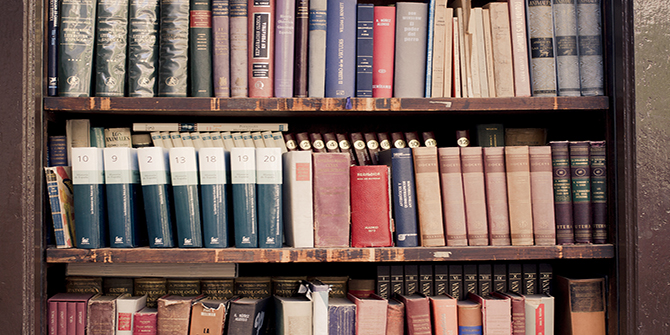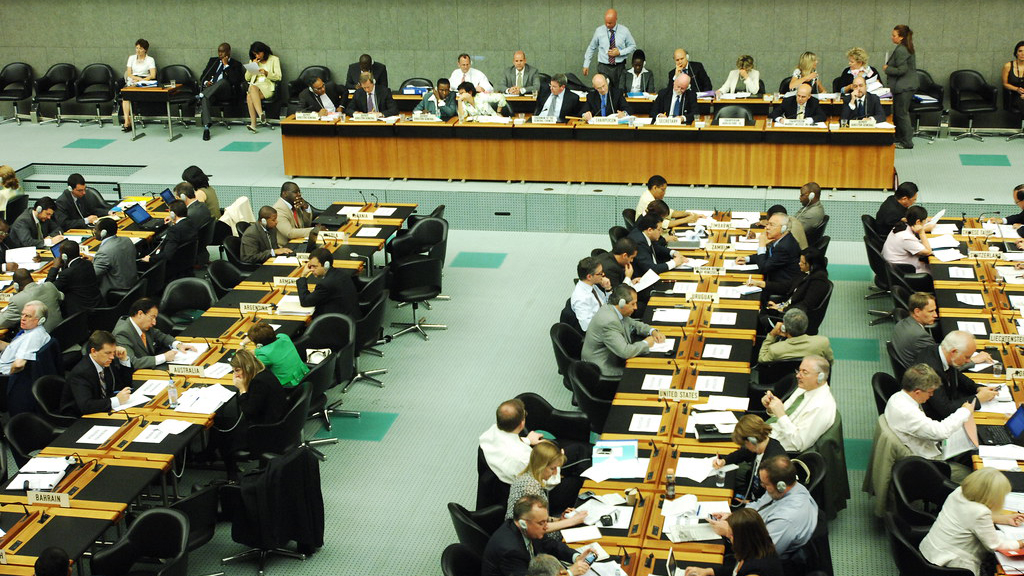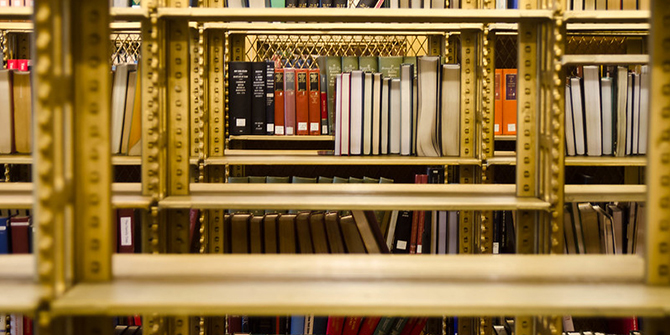Decolonising knowledge is an important topic, but what does it mean for libraries? Will it result in throwing away books by Nietzsche and Kant and replacing them with books by Chimamanda Ngozi Adichie and Binyavanga Wainaina? Jos Damen, Director of the Library of the African Studies Centre in Leiden, gives some practical tips on building a more diverse, decolonised library.
This post is part of the blog and podcast series Citing Africa which explores the global construction and imbalances of knowledge production.
The importance of libraries lies in three things: place, content and people. The library has always been a place where students and researchers can find paper books and journals, neatly placed together, arranged by subject. This function still exists, though merely for two reasons: to maintain the library as a quiet study- and meeting place for students, and as a place to find older books and special collections that are unavailable online.
Librarians are the people in the front office who help patrons find what they are looking for, and they are the information specialists who make sure that (e)books are available and who bring new information to patrons’ attention via web dossiers and alerts. Most patrons only focus on the content: they browse an e-book or journal article that the library has bought access to or they order a paper book via the catalogue.
Access to most scientific journals is generally arranged through electronic subscriptions via so-called ‘Big Deals’ between universities and large publishers. Other ways include separate subscriptions with publishers and scientific organisations. Books are acquired through more diverse routes: buying access to e-book collections from publishers (Springer, Elsevier, Brill, etc.), via library approval plans with brokers (Gobi Library Solutions, Erasmusbooks), by specific orders from library staff to publishers and by receiving gifts. In 2017, Leiden University Library bought 23,002 printed books. To date, the library has about 5 million paper books, 618,000 e-books and 70,000 e-journals. Leiden University is strong in Asian and African studies and so its library therefore buys books from China, Indonesia, South Africa, Ethiopia and other countries. Yet more than 90 per cent of the library collection still originates from ‘Northern’ sources.
Such a reliance on ‘Northern’ books and publishing houses means that we are missing out on important information and perspectives. Brokers and book suppliers often offer similar collections to many libraries because it’s cheaper. This cost-cutting means that libraries miss new and surprising developments, because other books don’t fit into current profiles or are published by small or new publishers. As Colin Darch has written: ‘Libraries have a responsibility to recognize that their practice cannot be value free, and that their collections are biased by the choices made by writers, by publishers, and lastly by themselves. ’To give an example: if you study Indonesian society without reading books from Indonesia or by Indonesian writers, you’ll miss a lot of information. Everyone understands that if libraries only buy books from, let’s say, French publishers, the available information will be selective. Smart librarians try to build a diverse collection and must therefore buy more than what the regular ‘Northern’ publishers have to offer.
3 tips for a more diverse library
Go South!
In the last two decades, staff from the Library of the African Studies Centre in Leiden have undertaken annual book acquisition trips to, amongst other places, Ghana, Zimbabwe, Morocco and Tanzania. Every book acquisition trip is based on a visit to a Book Fair, combined with visits to bookshops, universities, NGOs and knowledge institutions. The results differ: in 2018, we collected 250 books in Botswana while in 2016 we amassed 1,200 books in Nigeria. That being said, costs are not as high as one might expect: the total cost of the trip to Nigeria (1,200 books) was EUR 15,000, including buying books, tickets, hotels and postage – that’s less than EUR 13 per book.
Reconsider the collection policy
Look at your own Library collection with fresh eyes and compare your stock with your collection policy. Is African Studies a key subject at your university? If so, how many books do you have that are printed in Rwanda or Kenya? You don’t have to go to Africa to buy these books: contact a bookshop or broker willing to buy these materials for you on the basis of an approval plan, or contact local universities or knowledge institutions. There are specialised internet bookshops and brokers, like Rugano Books, African Books Collective and Hogarth, who can assist.
Open Access
Open Access can also help to diversify. And it works both ways. The library has a task to ensure that publications by all researchers are available as open access online. Libraries can also help by facilitating other forms of open access and guide people in this way.
And no, the result of these actions will not be the disposal from the library of books by Nietzsche and Kant! Books by Chimamanda Ngozi Adichie and Binyavanga Wainaina are already among the fashionable books in our libraries. What we need is to bring into the library new voices – voices we haven’t heard before.






Your article might be taken to imply that books published on Africa by western imprints are of less scholarly value than those published in African countries. I have a number of books authored by Toyin Falola, arguably the doyen on Yoruba history. An early example in my collection is “The political economy of a pre-colonial state: Ibadan 1830-1900”. Ile Ife: University of Ife Press, 1984. Most recently I purchased Aribidesi Usman’s and Toyin Falola’s “The Yoruba from prehistory to the present”. Cambridge; New York: Cambridge University Press, 2019. I also have Adeagbo Akinjogbin (ed.) “War and peace in Yorubaland 1793-1893”. Ibadan: Heinemann Educational, 1998 and S. Adebani Akintoye’s “A history of the Yoruba people”. Dakar: Amalion Publishing, 2010. I would be hesitant assume that Professor Falola’s latest offering on Yoruba history is in some way of less scholarly value because it was published in the West.
Forgive my academic ignorance but if the major reference libraries (as opposed to the local community libraries) only buy books from the major publishing houses is this a very lazy approach to the acquisition of knowledge that they were founded to perform?